This post may contain affiliate links and Corporette® may earn commissions for purchases made through links in this post. As an Amazon Associate, I earn from qualifying purchases.

Careers and personalities are always a fun topic, and a TON of of different things exist out there to help you pick which career might work best for you. A friend just told me about the StrengthsFinder and of course there are books like What Color is Your Parachute (updated yearly, apparently!), and I know I've taken interminably long quizzes that have told me (much to my dismay) that being a lawyer is a great career for me. (Wasn't there a similar episode of Friends where Chandler finds out he's a great fit for the job he's hated all those years?) So I thought it might be fun to have a conversation about it.
{related: is your job is right for you? how to tell}
For those of you happy in your careers — what is the specific mix of personality trait and career characteristic that is a great fit for you? For those of you who've been unhappy in your careers, what was/is the mix of personality trait and career characteristic that grated the most? Does anyone swear by a book or test that helped you find your path? For those of you who have been in one career for a while, but hated one job and loved another, what were the job-specific traits that hurt or helped your fit for the job?
{related: 4 personality tests you should definitely take}
How MY Personality Has Affected My Career
For my own $.02, I would say:
– Happy mix: Creative introvert / blogger. I love being able to work by myself to come up with and execute different ideas, and I don't have a problem either generating ideas or working by myself for long stretches. Another happy mix: Authority questioner/entrepreneur. I love running my own business, in part because I've always had that kind of personality that questions authority, particularly when there isn't a good reason for something. (Of course I now understand that sometimes it IS a good reason that “it's the system” or “it's what's worked for 15 years” or “it's what I know so that's what we're going to do.” I just vastly prefer to be the one making the rules.)
– Unhappy mix: Gray vision / lawyer. I don't quite know how to describe this, so I'll call it “gray vision” — that general state of being where some people see black, some people see white, and you see gray. I'd say that characteristic was a huge struggle for me to overcome in any legal argument that I wrote… I was always in awe of people who could argue passionately for their side, even with full knowledge of all the good points the other side had.
Readers, how do your personality traits make you a great fit for your careers?
Psst: These are some of our favorite books if you're considering changing your career
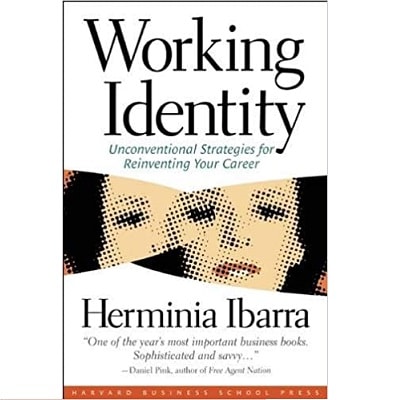
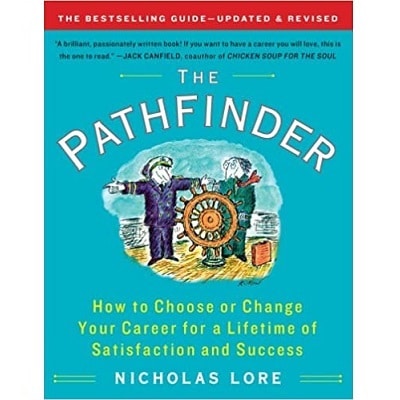
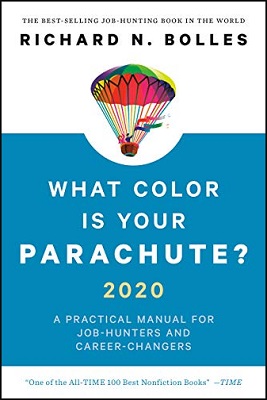
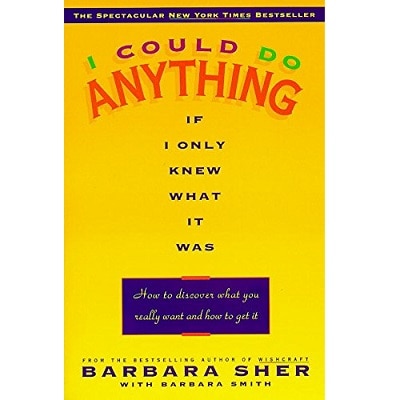
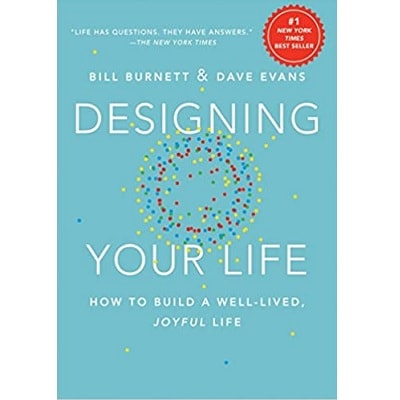
This post contains affiliate links and Corporette® may earn commissions for purchases made through links in this post. For more details see here. Thank you so much for your support!
Updated images (2021) via Stencil. Originally pictured (2013): glass half full, originally uploaded to Flickr by jaynometry.

Hannah
That’s funny, I am a more black-and-white type person (I love my boundaries and clear rules) and I find that kind of vision challenging as a lawyer. So many rules are NOT clear, and as I’m sure you know, a lot of our answers to questions start with “It depends…”
Cat
Agree – I think gray vision is definitely an asset as a lawyer, and one that I’ve gotten better at over the years (I was a math major in undergrad and switching from the “right answer is known” to “right answer means looking at it different ways” mindset was difficult at first). It means you are better at considering where the other side is coming from, and therefore to be more prepared to counter their arguments, or “give” them something that you’ve figured out is important to them but not to you in a deal. The one-sided statements that come spouting out of the partners’ mouths are definitely calculated, not a fervent belief that Client is 100% right!
Em
Yeah, I agree – I think all really good lawyers have grey vision. It sounds like what Kat is describing is a problem with the type of advocacy required in law, which is a different thing. One thing I say when interviewing on campus (and maybe should stop saying because I don’t think law students like to hear it) is that law is not a profession for you if you have problems confronting moral ambiguity. Because you will be making arguments knowing that there is counterargument X or policy issue Y that makes that argument a problem.
I think most happy lawyers deal with it in one of two ways (or a mix of those two ways): either they have clients they believe in (e.g., the get that dream job at an environmental non-profit suing polluters) or they have a place in the system they believe in (e.g., your prototypical public defender who knows most of their clients are guilty but fervently believes in their right to a vigorous defense).
RR
I was thinking the same thing. Black and white vision is so frustrating to me in fellow lawyers because it leads to the “there’s not a perfect case directly on point that says we are going to win, ergo we shouldn’t even make the argument” mentality.
Midwest Mom
At 47… I recently re-evaluated my career, read a book about moving from success to significance… then created my job, sold it to my dream employer and they hired me for it. So I am very happy. I have done a lot of testing over the years and found that Strengths Finder 2.0 by Tom Rath was the best book for me. Learning my top five traits helped me further hone what would be the best job for me. I also found the book Start with Why by Simon Sinek to be very helpful… I realized that I need a visionary in charge… didn’t have that at my last company… so I needed to make a change. I also think age and experience have a lot to do with it. I count myself blessed to be where I am.
Anonymous
+1 – Strength Finder is a good book.
Veronique
I used Strengths Finder in law school and it confirmed that law is a good fit for me. Fast forward a few years and I’m one of the few happy lawyers I know! The strengths that help me to be a great in-house transactional lawyer are analytical, learner (love to learn), maximizer (prefer to maximize/exploit my existing strengths) and strategic. I’m also a big picture person and love working with the business towards a common goal, not just on discrete transactions. I love learning the business as much as possible, which helps me to do my job better.
Anonymous
Could someone talk about What Color is Your Parachute? Is it designed for anyone in particular or it is more general advice that anyone could use? I’m in my late 20s and am at a career crossroads, and some direction from someone other than my husband or mom would be nice.
R
I didn’t find Parachute to be as helpful in giving specific advice. It felt very self-help to me. I did enjoy Strengths Finder and full Myers Briggs testing, and I would also recommend looking at the RIASEC tests (My company used the booklets from Self-Directed Search). They all have the same general idea – find your aptitude, and we’ll suggest specific careers that make the best use of your skills.
Sascha
I’m an IT system administrator at a university, and I found that my helpful nature + problem solving skills are part of what I love about being a system administrator, but they made me hate customer service/front line help desk work. I love working on big, complex problems and deployments, and making systems better for a large number of people, but it grated on my nerves to help individuals day after day with the same easy-to-fix questions (and sometimes the same person asked the same question over and over). But I had to do the front line help desk and work my way up, as is usually the case in the IT field.
I took the Myers Briggs full test (not the free ones floating around online) a few years ago and it was pretty spot on for me. Of course some of my attitudes have changed, but I found that test to be insightful. Oddly enough, the careers the test said I was suited for, I wanted nothing to do with (like counseling, teaching, etc.)…but when I thought outside of their box, I was able to think about what types of tasks I liked doing, and what I didn’t like, and it helped, in addition to other things, give me some focus.
Calibrachoa
You just outlined all the reasons I have for wanting to be in systems admin :)
Monday
I’d been thinking about this recently in terms of the fit of various job elements with introversion. I’ve actually found that it’s a mistake for me to cater too much to my impulse to be alone all the time. I lose some of my social “muscle,” develop more anxiety about dealing with groups, and end up isolated from valuable professional connections (individual academic research with light teaching loads, historically). My next moves are based on the lesson that more personal interaction at work, though exhausting, is good for me.
Magpie
I think this is a great point. I’d chosen my biglaw firm in no small part for what I felt was its less exhausting social culture compared to some others out there, but now it’s really tempting to just rest on that to my detriment. There is no professional community on this planet where you don’t benefit from connecting effectively with others, even (perhaps especially) if it’s tiring.
Recent Grad
I have a slightly unusual rant. So I just graduated school and have been on a VERY tight budget for the past decade. Because I spent what little “clothes money” I had to buy work clothes, my casual wardrobe is practically non-existent. All I own are suits, slacks, cardigans, button-downs, etc. Now I have some extra spending money for the first time in years, and I want to buy some normal people clothes. But I’m realizing that when it comes to casual clothes: (1) I have no idea what’s in style for a 20-something, (2) I have gotten out of the habit of wearing “girly” things and feel completely uncomfortable in frilly dresses/skirts/etc., and (3) I am having trouble navigating between “too young” and “too old.”
I realize this is a completely ridiculous problem to have. But can anyone either give me some advice or point me to a blog so that I can start shopping and stop going to bars and baseball games in work clothes? Thanks in advance.
espresso bean
I really like Extra Petite’s fashion blog (even if you’re not petite — just for inspiration). She does a nice mix of corporate attire and casual outfits, and she always looks put-together and stylish.
goldribbons
I like Putting Me Together. Very natural style, not too expensive.
goldribbons
Sorry — Putting Me Together is the blog name, and by “not too expensive” I mean trending toward Target prices.
ZipStyle Seattle
Hope it’s not too obnoxious to mention my blog, but as a personal stylist, I blog about trends, professional clothing and where to shop. I love dissecting modern looks into attainable, real options. My goal is to make fashion easy.
http://zipstyleseattle.com
ZipStyle Seattle
Oh – also, I’ll be blogging H&M online picks this coming week – probably great finds for you since you’re on a budget!
M
I use jeans/shoes/accessories to dress down many of the tops I wear with suits, skirts, etc. Obviously this will not work with every Mon-Fri shirt (I’m looking at you, stiff button downs), but it’s a start. My advice: Get 2 pairs of jeans that you love, preferably different styles (e.g. one skinny, one bootcut), and some cute flats/wedges. Browse the jewelry/accessories sections of your favorite stores and the rest will fall into place. Although she usually focuses on office-appropriate attire, Belle over at caphillstyle features some some “not too young, not too old” casual outfits fairly regularly as well.
ss
Why not look around at what your friends wear ? This probably gives you a much better handle for the level of dressiness/ girliness/ youthfulness required to fit in or stand out as you prefer, rather than looking at 3rd party blogs or editorial material. Then come back and post if you want help searching for specific items – classy jeans, long-wearing Ts, petite or plus-sized – there are some ladies here with magnificent online search-and-shop skills.
Maybe Quiet
Funny, I always hit that ‘gray vision’ problem during school debates.
I think enjoying a caring role and enjoying the adrenaline rush help with survival in healthcare.
Perhaps ego-boosting for people who tend to need frequent external validation to feel good about themselves. Or is that just me being jaded?
Woods-comma-Elle
This is interesting.
For me, I am quite impatient which doesn’t really help as a lawyer, because I am not the type to delve deep into tiny details and analyse the specific law – but this is something that I think is less of an issue in my transactional area. I am a creator rather than an analyser, so I enjoy drafting documents and advices way more than I enjoy reading case and arguing about theory.
The things about me that (I think) make me good at my job, are that I am very organised and methodical (also a math major) so this helps in running deals and relatively outgoing, so I tend to find it easy to create relationships with clients. That said, I don’t love the schmoozing and the ‘sales’ part of my job is the part I like the least.
I think I would be absolutely terrible in any kind of job that involved dealing with people who require a lot of patience, like children, or anything that involved cold calling of any kind.
INFJ
This is exactly what I needed today. I just finished Quiet which I enjoyed despite the lack of distinction between “introverted” and “shy” in the book (I’m an introvert but not shy). I’m going to buy Strengths Finder tonight.
And if anyone has any INFJ career wisdom, I’m all ears.
OttLobbyist
I just finished Quiet and am about to start Strengths Finder. Quiet was instructive because it helped me to see that my introversion (INTJ) is what makes me stand out in a field of extroverts (I agree with the shy criticism – I am the same). I am hoping Strengths Finder will help me better understand how to use the natural strengths, including those that tend to go with introversion, to be a better leader. My best career wisdom for any “I” is to not be cowed into extroverted behaviour or work styles – you will make mistakes because you aren’t focusing properly.
Burgher
Funny, I’m the opposite – shy but not introverted. I can talk all day if you are someone I am comfortable with. I just have difficulty approaching people and striking up conversations or starting new friendships.
Being in a career that is very socially centered (construction industry), I think that it can be a strength that I am not too brash. Especially in a workplace that already has many big personalities, I am not competing or conflicting with others unnecessarily. When you are usually very reserved and professional, you really get people’s attention when you yell in a meeting!
AlaskaLaw
I took the Myers-Briggs when I was in a government legal office and every single attorney but me scored similarly: my results (except for the introvert/extrovert category) were diametrically opposed to all the other attorneys. The psychologist who administered the test later contacted me and advised me that he felt I might be happier in a different field. Oddly, though, I love practicing law though I think I do it differently than the other attorneys in that office. I am not detail oriented, I do not build a case brick by brick — I see the end result in my head so clearly, and if I can get the jury to see it the way I do, as a whole, perfect thing, then I feel like I can succeed. I like the theatrical aspect of a jury trial, I like the formality of the setting, and of course the adrenaline rush of never knowing what may come next.
ExcelNinja
I also loved StrengthsFinder. It showed me that it doesn’t matter what I do, as long as it is significant to the organization, and as long as I can achieve goals (being able to point to something and say “I did that” is something I need to feel successful).
It was super helpful to me to understand that about myself, because I was stuck on finding my “dream job”, when really my dream job is any job where I can win every day doing something that is mission-critical, and where I get to work with smart & positive people.
INFJ
I’ve come to this realization myself, and I really like how you worded your last sentence.
KL
In high school I took a multi-dimension career/personality test and ended up with a combination (creative + analytical) that didn’t have any jobs listed under it at all! The closest match, on all but one dimension, was engineer. At the time, I was determined to study literary theory and major in English, or become a librarian.
Fast-forward several years and I studied computer science in college (though I did take a fair share of literature electives) and am on track to become a software engineer. I really enjoy the work, too. So maybe those personality tests are onto something.
YR
Compassionate Science Geek
Perfect Fit – Clinical Dietitian
Worst Job Ever – Corporate Staff Accountant
Margo
@KL – I might describe myself similarly. As a creative, you’ll probably hate the larger software firms but thrive in some of the next-gen Marketing Automation firms. They’re doing really amazing things and your creative aptitude will suit you well to dreaming up and delivering the next set of enhancements. Plus that space is white-hot right now with a lot of M&A activity as the stalwarts are buying the newer, hotter Marketing Automation firms.
– A very passionate technically savvy marketer
edilizia
Hi! Do yyou use Twitter? I’d like to follow you
if that would be ok. I’m abslutely enjoying your blog and look forward to new posts.